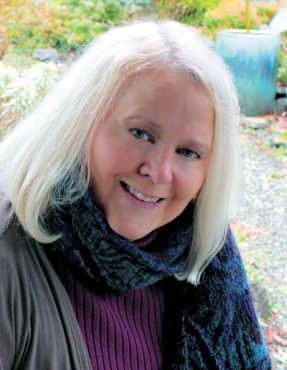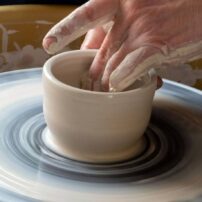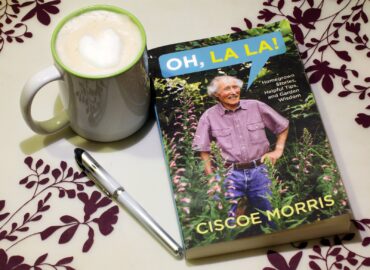 Garden books are often dry and read more like an encyclopedia. Yet not so with Ciscoe Morris’ book, “Oh, La La!: Homegrown Stories, Helpful Tips, and Garden Wisdom.”
Garden books are often dry and read more like an encyclopedia. Yet not so with Ciscoe Morris’ book, “Oh, La La!: Homegrown Stories, Helpful Tips, and Garden Wisdom.”
Well known for the tales he peppers into his garden talks, Morris has a talent for storytelling. He takes his readers on a pleasurable journey through the pages of “Oh, La La!” and feeds garden knowledge while captivating his audience with delightful stories.
Morris’ voice is prominent in his writing, so as you read, you imagine you’re having a conversation. The book is packed with plenty of laugh-out-loud moments and garden knowledge on every page.
He gives the credit for his ability to spin a tale to his parents.
“My dad was in vaudeville — he was a hoofer,” Morris says. “He had graduated from high school, and this guy down the street taught him how to tap dance. Dad was really good at it.”
The father met his bride-to-be when he hired her to be a dancer in his dance studio. The two began a dance troupe that traveled around the Midwest. Both parents were tremendous storytellers.
 “There are seven kids in my family. We’d hear all these incredible stories all the time, endless stories. It got into my whole family,” Morris says. “Nobody ever wanted to go to dinner with us. You would not get a word in edgewise. It was a battle — who got to tell the next story.”
“There are seven kids in my family. We’d hear all these incredible stories all the time, endless stories. It got into my whole family,” Morris says. “Nobody ever wanted to go to dinner with us. You would not get a word in edgewise. It was a battle — who got to tell the next story.”
Morris began gardening when he was a boy, helping his grandmother and his mother in the garden. At 10 years old, he went to work in a local church garden down the street. The church wanted an assistant gardener. Young Ciscoe began pestering one of the priests to hire him.
“I even walked in with my sombrero,” Morris recalls. “But the fifth time I went to harass the poor priest in charge of hiring was the first time I ever heard a priest swear.”
Morris recalls the priest saying, “All right, all right, you have the job. Don’t ever come to this office again,” as well as using some other choice words.
“Old Joe,” the church gardener he worked with, took Morris under his wing and taught the young boy many garden techniques that he used later in life at the Seattle University.
“[He] had a big influence on me. Something happened to him in World War II — he would not touch a poison for anything,” Morris says.
Old Joe’s influence helped Morris develop various programs that excluded many commonly used chemical pesticides.
Morris’ mother also influenced him.
“She grew a lot of perennials and she loved vegetable gardening. She had a half-hour rule, which I hated,” he says.
His chores included working a half hour every day in the vegetable garden, weeding, harvesting and anything else she asked him to do.
“If I didn’t do it during the week, I had to spend all day Saturday working with her in the veggie garden instead of playing Little League baseball. I learned a half hour a day was a quick way to do it,” he says.
Even though Morris claims he moaned and complained while doing his chores, he learned to love gardening.
Morris came to his media career in the 1980s when he filled in as host for a question-and-answer show on KIRO AM Radio. Yet it may well be the case of mistaken identity behind how he became a regular on the Northwest Home and Garden Show on KIRO-TV.
“I loved being on that show,” he says.
He almost put the following story in the book, but he ran out of time.
It started with a letter asking him to try out for a new television show about home repair and gardening.
“It was a typed letter, but my name was handwritten in, so I was a last-minute thought of whoever was inviting people to try out,” he recalls.
On the day of the tryout, Morris set up his schedule to leave early from his gardening job at Seattle University. Unfortunately, the campus had a water-main break, and he became involved with solving the problem.
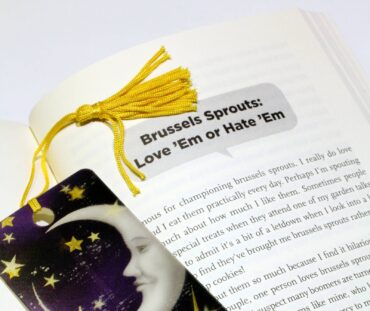 “So now I’m a little bit late. I was a certified arborist in those days, so I had to stop at a big development project because a truck hit a tree,” he explains. “The developer still wanted to keep the tree, so I got involved in this gigantic argument.
“So now I’m a little bit late. I was a certified arborist in those days, so I had to stop at a big development project because a truck hit a tree,” he explains. “The developer still wanted to keep the tree, so I got involved in this gigantic argument.
“Now I can just make it on time to a hotel in Bellevue. I get in the car, and now I’m nervous, and I got to get there quick.
“There’s a big wreck on 405. All lanes stop for a while. I finally show up at the hotel to try out for this show — 45 minutes late.”
A nervous wreck, Morris was sweating as he ran into the room. An assistant handed him a packet and told him to memorize the words.
“I started reading the lines. They are about parquet floors. I didn’t even know what a parquet floor was, you know,” he says, and his voice rises as he retells the moment. “I’m like, oh no, how am I going to do this?”
The man next to him got up and said his lines.
“Well, I’m sorry, but we got to quit right now,” Morris recalls the producer saying next.
It turned out, the room was reserved for a limited time, and they had to leave immediately.
“I was so bummed,” Morris says. “I get home and I’m whining to my wife, Mary. The phone rings, and it was the assistant producer that I didn’t meet. She said, ‘We want you on the very first show.'”
Totally surprised, Morris listened as she told him what to talk about. He didn’t know what was going on, but told his wife he planned to go.
When he arrived on the set for the first filming, he watched camera and sound people mill about, and Jeff Probst walked around the scene. No one paid any attention to Morris.
After about 15 minutes, he found the producer and said, “Uh, hey! I’m here to do a show.”
The producer said, “Who are you?”
“I’m Ciscoe.”
The producer looked at him and said, “You’re not Ciscoe; that other guy is Ciscoe.”
“I’m Ciscoe.”
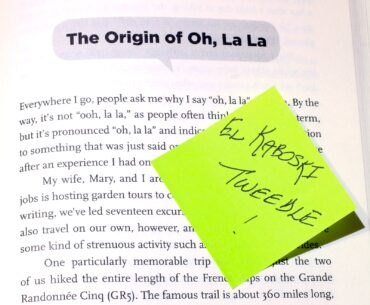 The producer turned around to the camera crew and said, “We got to do it with this yahoo now.”
The producer turned around to the camera crew and said, “We got to do it with this yahoo now.”
Morris laughs as he recalls the story. “Well, this yahoo must have done something good. I was on that show every week for seven years,” he says. “To this day, I don’t know who the poor guy they thought Ciscoe was.”
The rest is history. Probst went on to host other shows, such as “Survivor,” and Ciscoe Morris went on to become a garden writer for the Post-Intelligencer and Seattle Times, garden speaker and author of “Oh, La La!” and “Ask Ciscoe.”
He confesses he has a hard time putting his “hinder” in a chair and looking at a computer screen.
“My office is wonderful. I look out at the gardens and I share it with my wife, Mary, because she does a lot of work — she manages our business,” he says.” When I’m looking out the window at the hummingbirds, then I see a plant that needs pruning, you know. It’s the worst thing you can do if you want to get to writing.”
Writing takes a lot of discipline, and Mary helps keep him on track. He gave himself a 500-words-a-day rule, “no matter what.”
If you listen to Morris’ talks, you know he uses many unique words.
“All my life, I’ve made up words. El kaboski pest control is a form of pest control where you insert the insect between thumb and forefinger. You yell, ‘El kaboski!’ as you squish for the full effect,” he says.
Tweedle is his favorite. “I love the word tweedle. It can be used a hundred thousand ways and it’s so full of enthusiasm,” he says. “I just love the living tweedle out of so many things. That’s why I love those kinds of words.”
In his book, Morris tells many of the stories he uses in garden talks, the ones that people love and teach about gardening. “Oh, La La!” won’t disappoint. It’s a garden book you want to read cover to cover. You’ll love the tweedle out of it.



